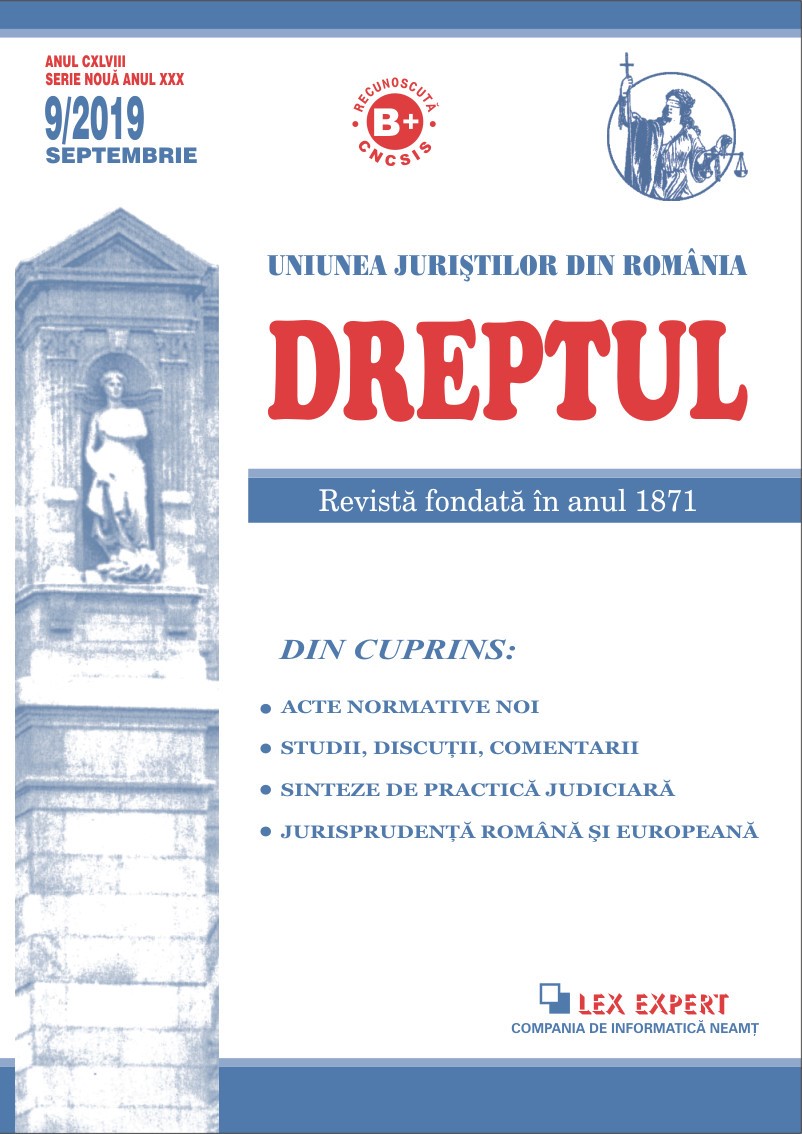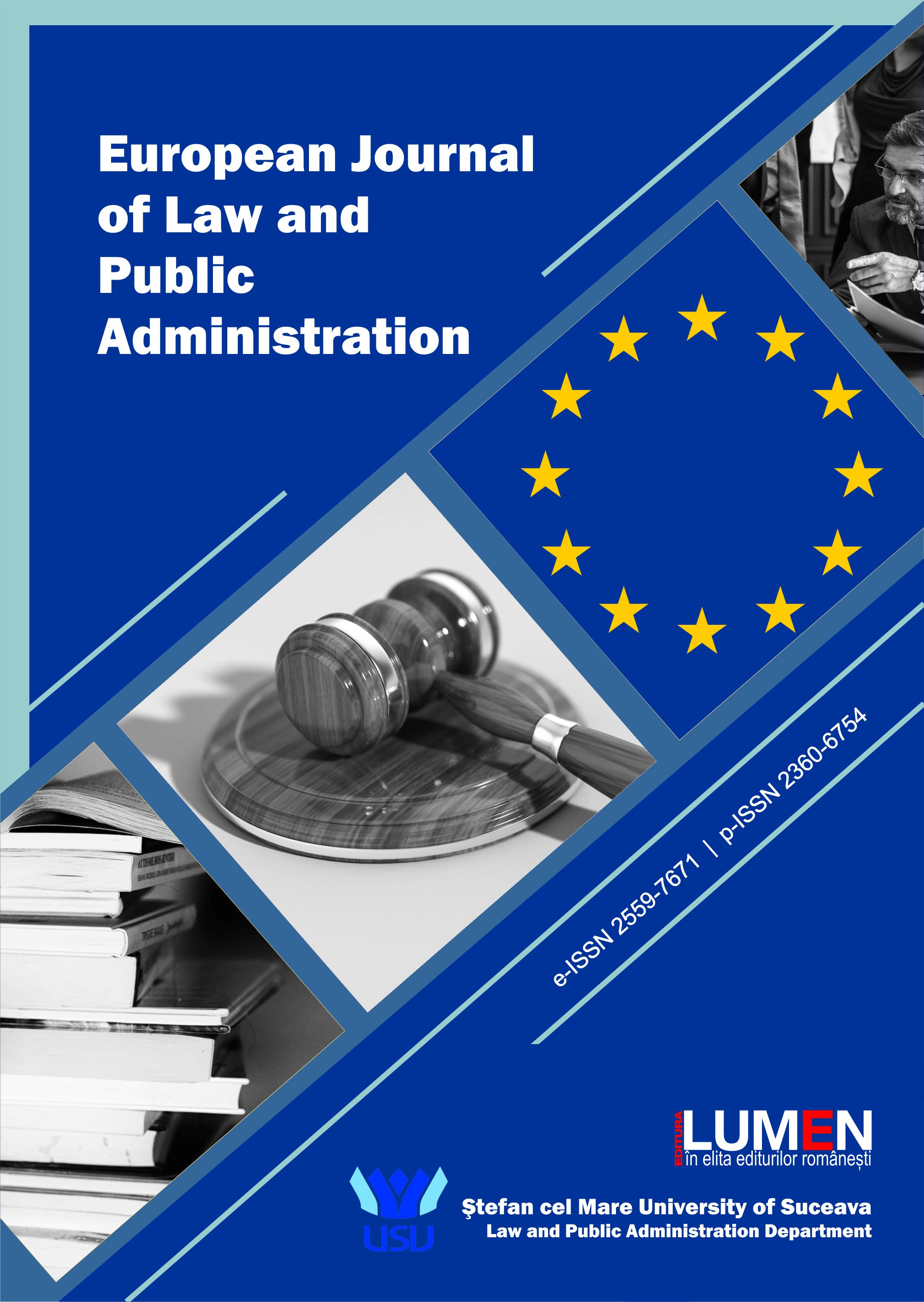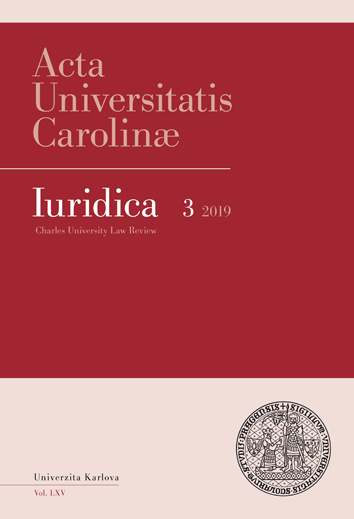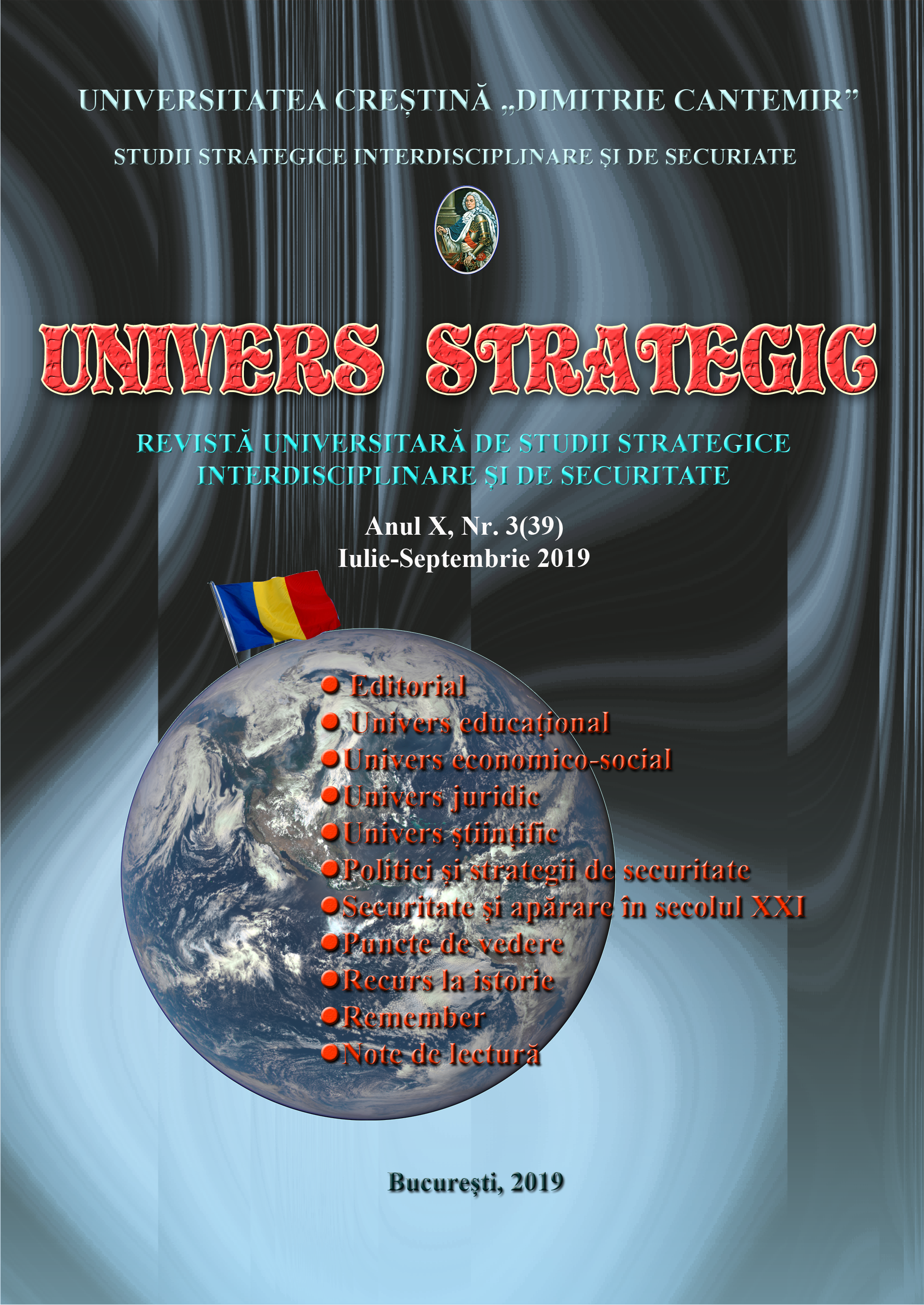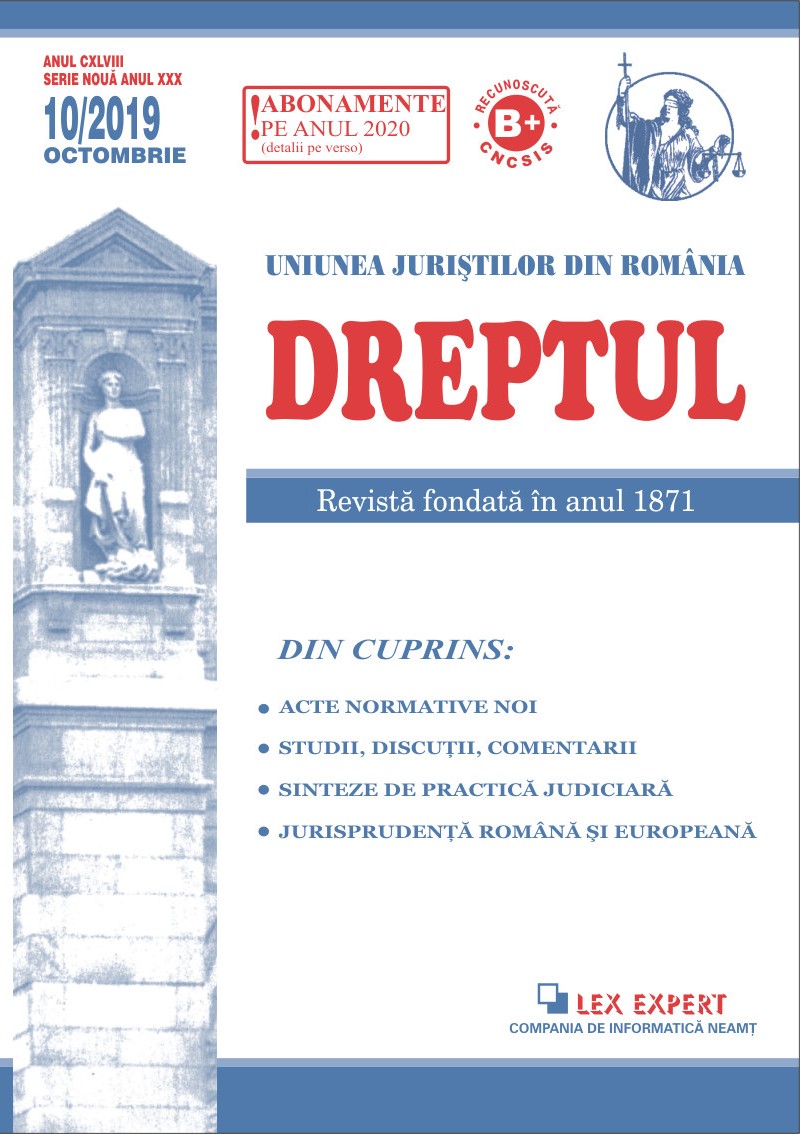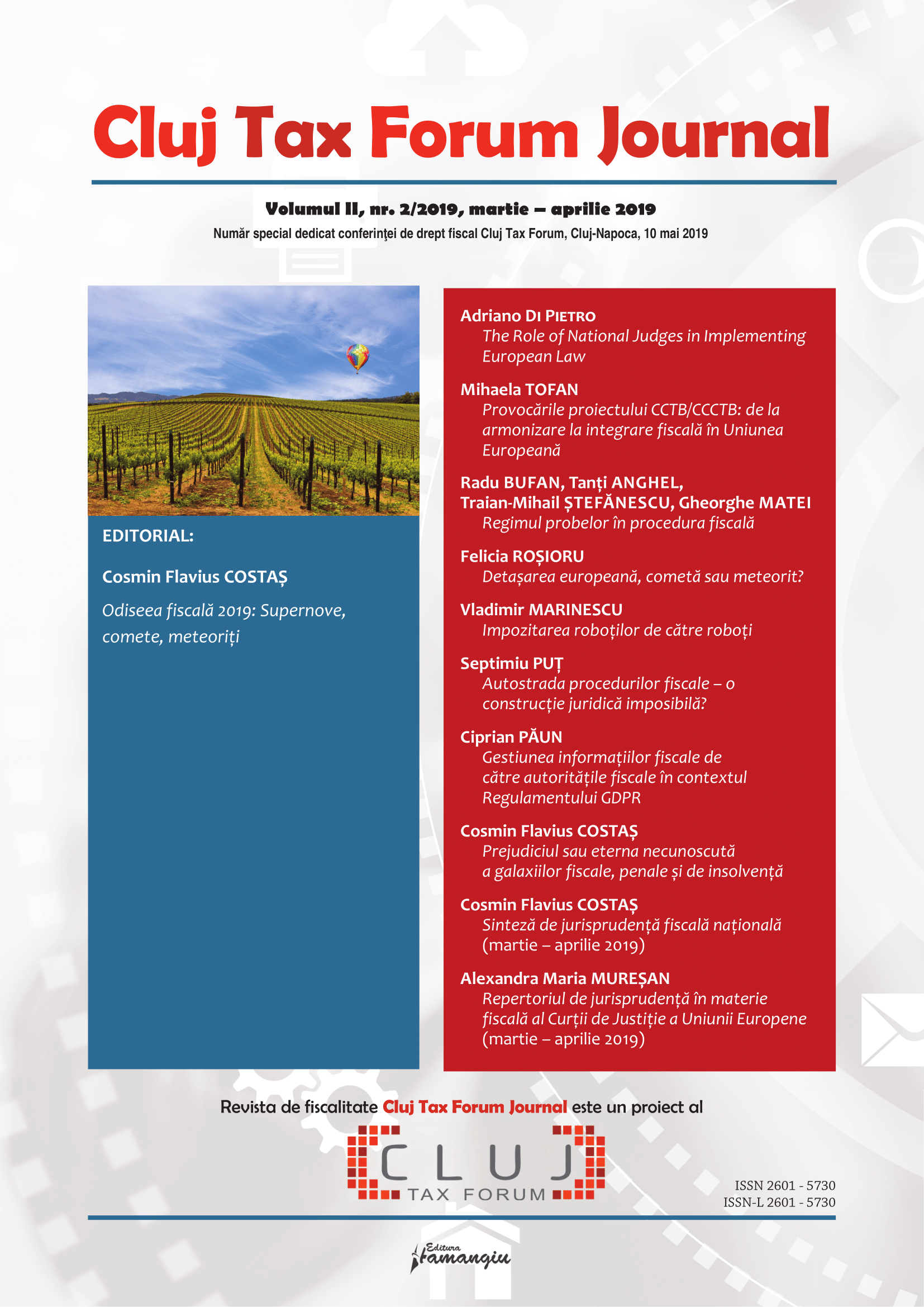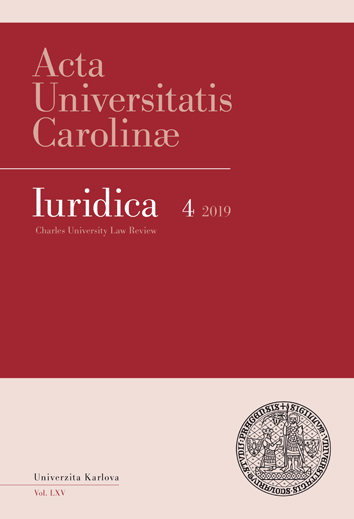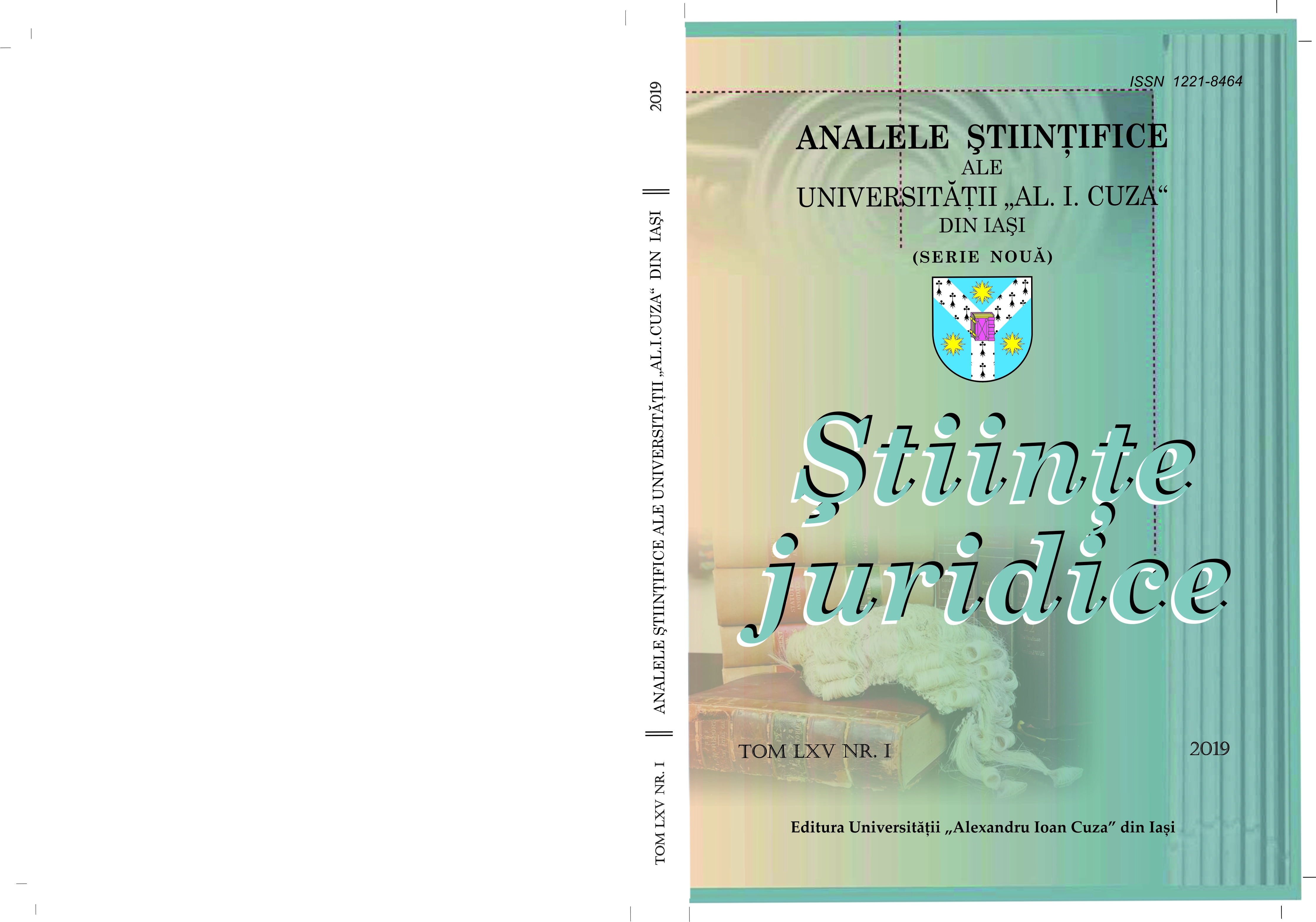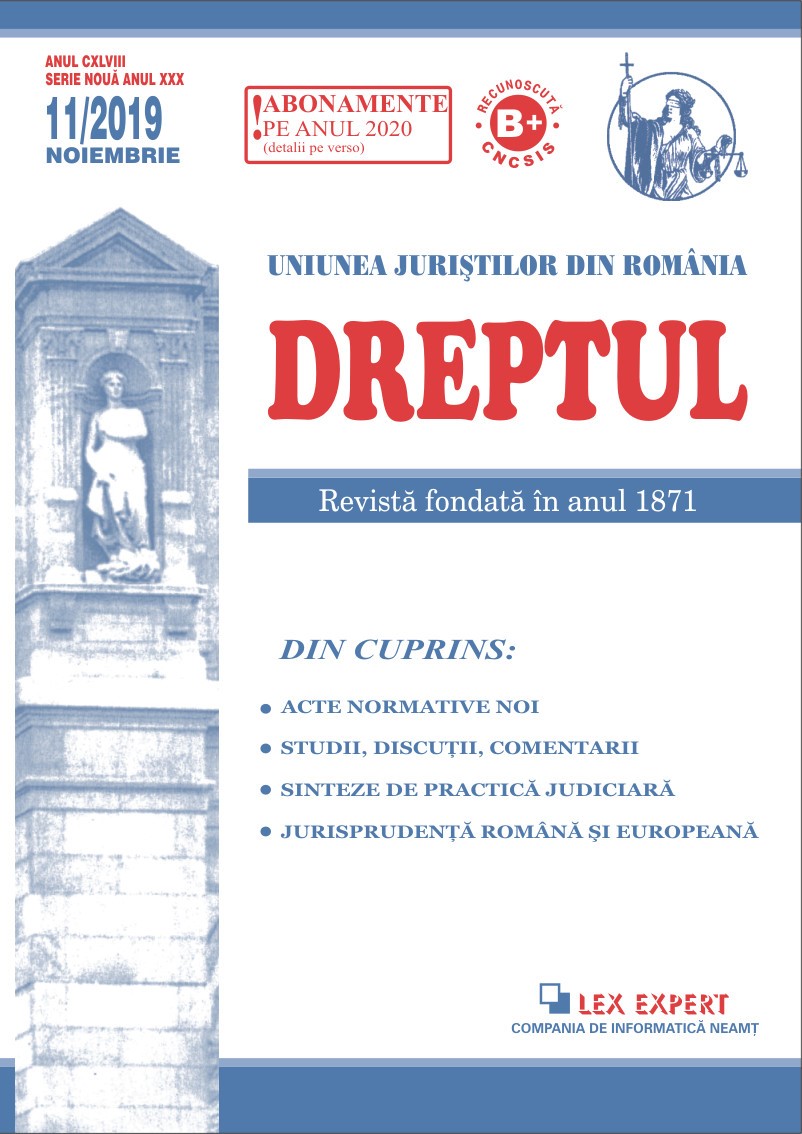Author(s): Ciprian Păun / Language(s): Romanian
Issue: 2/2019
Pentru protecţia drepturilor şi libertăţilor fundamentale, precum şi pentru libera circulaţie a datelor
personale şi cu scopul facilitării acesteia, Statele membre ale Uniunii Europene au învestit instituțiile
europene cu adoptarea unui regulament european privind protecția datelor cu caracter personal. Acest
regulament se raportează permanent la jurisprudenţa Curții de Justiție a Uniunii Europene, jurisprudență
care a constatat că libera circulaţie a datelor personale poate afecta dreptul la viață privată şi, din acest
motiv, autorităţile de supraveghere a protecţiei datelor personale sunt considerate gardienii drepturilor şi
libertăţilor fundamentale. Dreptul fundamental la protecţia datelor este limitat la protecţia persoanelor
fizice şi nu se referă la persoanele juridice. Astfel, într-o exegeză a teoriei generale a raporturilor juridice
fiscale, contribuabilii persoane juridice nu sunt vizați de aplicabilitatea Regulamentului. Cel puțin acest lucru
ar putea să rezulte din sistematica definirii noului Regulament. În consecinţă, protecţia conform GDPR se
extinde numai asupra persoanelor fizice. Într-o Europă superconectată și deschisă la interconectare, libera
circulaţie a datelor personale nu poate fi limitată şi interzisă din motive legate de protecţia persoanelor
juridice în cadrul procesării datelor (principiul liberei circulaţii a datelor personale). Pe de alta parte,
exportarea datelor personale nu poate fi împiedicată, dacă se motivează faptul că într-un alt stat membru
nu există protecţia similară, generală a datelor sau o protecţie specială, detaliată. De asemenea, nu se
poate emite o interdicţie legală de a salva datele personale într-un alt stat membru. Este importantă
garantarea liberei circulaţii a datelor personale, mai ales în cadrul proceselor transfrontaliere, care au loc
pe baza dispoziţiilor legale naţionale ale statelor membre. Este cazul, de exemplu, al schimbului automat
de informații fiscale, transferul de date privind contribuabilii sau problematica luptei pentru combaterea
evaziunii fiscale în spațiul european.
Prezentul articol nu se dorește a fi o lucrare academică, ce are ca scop o evaluare critică, ci mai mult o
analiză a unor perspective într-o abordare eseistică, raportat la faptul că azi Regulamentul GDPR este
văzut ca un copil din flori nedorit, născut să creeze confuzie sau rumoare într-o Europă a voyeurismului
intelectual și instituțional.
More...
